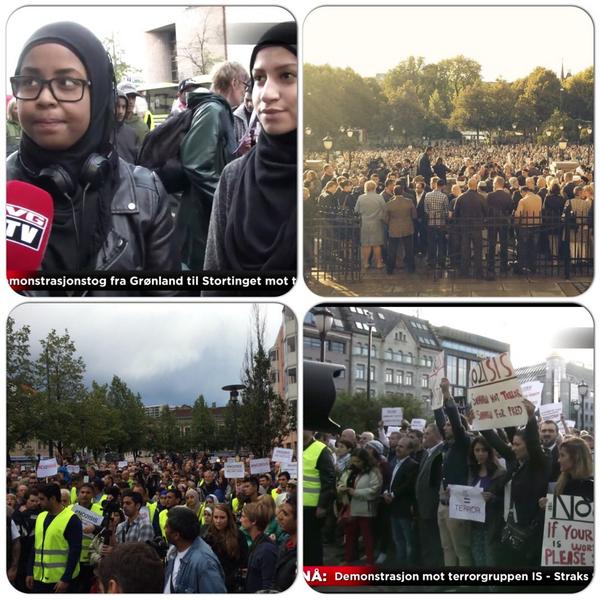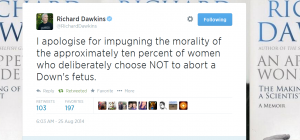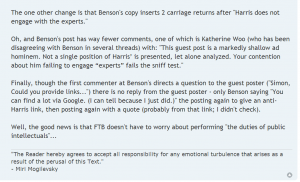David Colquhoun has a brilliant post that starts out being about ending the all-male status of the main and best UCL common room in the 1960s, and goes on to be about the importance of confidence for achievement, and continues on to be about the importance of role models and zeitgeist, and ends up being about the way over-competitiveness in academia drives out people who don’t like over-competitiveness and thus distorts and impoverishes academia.
Colquhoun loves UCL – its godless tradition, its multi-faculty nature, its comparative democracy.
From the start, the intellectual heart of UCL has been the staff Common Room. As I so often say, failing to waste time drinking coffee with people who are cleverer than yourself can seriously damage your career (and your happiness). And there’s no better place for that than the Housman room.
It is there that I met the great statistician Alan Hawkes, without whom much of my research would never have happened. It was there that Hyman Kestelman (among others) gave me informal tutorials on matrix algebra over lunch. It was there where I have met John Sutherland (English), Mary Fulbrook (German), many historians and people from the Slade school of Art. And it was there where, yesterday, I had an illuminating conversation with Steve Jones about the problems of twin studies for measuring heritability.
But guess what. When he first got there it was men-only. All that good stuff was available to men only. There was a women-only common room and a mixed common room, but the biggest and best was the Housman and that was men-only.
In 1967 we proposed a motion at the Housman AGM to desegregate all common rooms. It was defeated. The next year we did it again, and were defeated again.. But at the third attempt, in 1969, we succeeded. I was very happy to have had a small role in upholding UCL’s liberal traditions.
He then talks about marathons, and what we can learn from them.
One of the great thing about marathons is that women and men run in the same race. That means that almost all men have had to get used to being overtaken by very many women. That has been wonderfully good for deflating male egos. When I was training for marathons in the 1980s, my training partner, Annie Briggs was on the elite start -a good hour faster than I could manage.
Now we are accustomed to watching Paula Radcliffe run marathons faster than any but the very best men. She’s the world record holder with the spectacular time of 2 hours 15 min in the 2003 London Marathon (my best is 3 hr 57 min). That’s only a bit over 26 consecutive 5 minute miles. And that’s faster than I could run a single mile at my peak.
But wait, it gets even better than that.
It’s now utterly beyond belief that in the 1960s men were saying that women were too feeble to run 26 miles. It was sheer blind arrogance. After Switzer, progress was fast. In 1972 women were allowed to run in Boston, and within 10 years, the women’s record time had fallen by a full hour. Physiology hadn’t changed, but confidence had.
Of course it wasn’t until the 2012 Olympics that women gained total equality in sport. Everyone who said that women were incapable of competing in combat sports should see Rosi Sexton in action.
She’s the ultimate high-achiever. She’s an accomplished musician (grade 7 cello, ALCM piano) and she played at the Albert Hall with the Reading Youth Orchestra. She went on to get a first in maths (Cambridge, Trinity College), where her tutor was Tim Gowers. Then she did a PhD in theoretical computer science from Manchester (read her thesis). And she’s had a distinguished career as professional athlete, competing at the highest level in MMA. Why? “The other things I did, the music, the maths, just weren’t quite hard enough“.
A hat trick of accomplishment.
And this kind of thing is good pour encourager les autres.
It could not be more appropriate than to be writng this in the week when the Fields medal was won by a woman, Maryam Mirzakhani, for the first time since it started, in 1936. Genetics hasn’t changed since 1936. Confidence has.
UCL mathematician, Helen Wilson, points out the encouragement this will give to female mathematicians.
Confidence is important, encouragement is important, inspiration is important.
And he has one last point:
And the job of desegregation may not be entirely finished. In fact now it is harder to combat, since it’s unspoken. Once again, I’m reminded of Peter Lawrence’s essay, The Mismeasurement of Science. Speaking of the perverse incentives and over-competitiveness that has invaded academia, he says
“Gentle people of both sexes vote with their feet and leave a profession that they, correctly, perceive to discriminate against them [17]. Not only do we lose many original researchers, I think science would flourish more in an understanding and empathetic workplace.”
The perverse incentives that make academic life hard for women (and for many men too) are administered by HR departments (with the collusion of mostly elderly male academics). They are the very same people who write fine-sounding diversity documents and lecture you about work-life balance.
It’s time they woke up.
Understanding and empathy are important too.
By the way, want to know how I was alerted to this beautiful essay? Via Richard Dawkins on Twitter.
(This is a syndicated post. Read the original at FreeThoughtBlogs.)










